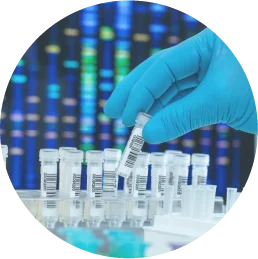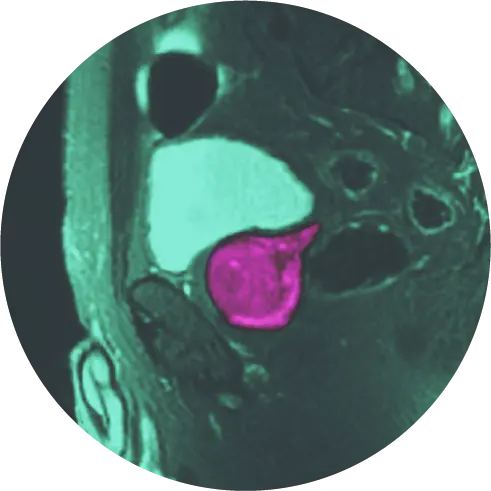At times, life can feel like a mystery novel, full of unexpected twists. Often, we wish we could preview the chapters ahead to see what might happen next. We would love to have that same ability when it comes to our health. Knowing what could happen in the future doesn’t allow us to control everything, but it helps when we can prepare for possible challenges.
Precision-focused healthcare, also known as personalized medicine, is that preview we have been wishing for. It empowers patients and providers with the insights they need to understand their genetic makeup, know their risks for conditions like breast and prostate cancer, and make informed decisions about their care.
If you ask a person who has been visiting doctors for many years to describe their experience, they may tell you about a quick examination, where the doctor gives them a generalized diagnosis and cookie cutter treatment that leaves them with more questions than answers. Historically, physicians have not been educated on the most effective communication methods for informing patients about their healthcare alternatives. Often, the experience is a clinical encounter that does not give the patient the information they need to be involved in their treatment choices.1
Precision Medicine is the New Standard of Care
New trends in healthcare and patients who have become more vocal about their healthcare expectations are establishing precision medicine as a new standard of care. Also referred to as ”personalized medicine,” precision medicine is an innovative approach that tailors disease prevention and treatment to the patient by taking into account their unique differences in biology, genetic makeup, hereditary risks, and more. Factors that can contribute to an individual’s risk of disease and/or determine their predicted response to therapies include ancestry, ethnicity/racial background, and environmental and behavioral factors. The goal of precision medicine is to target the right treatments to the right patients at the right time.2
For cancer treatment specifically, precision medicine leverages biomarkers, genetics, and additional tests to educate physicians and collaboratively select treatments that are most likely to help their patient.
Biomarker Testing
Biomarker testing for cancer treatment is a way for providers to look for measurable biological factors (called biomarkers or tumor markers) that provide information about cancer. Each person’s cancer biomarkers have unique patterns, and some biomarkers affect how certain cancer treatments will work for a certain individual. For example, cancer treatments like targeted therapies and immunotherapies may only work for people who have specific biomarkers.3
If your testing shows cancer biomarkers, the results could help you join a clinical trial, which is a study of a new cancer treatment. Some trials, known as basket trials, select people based on their biomarkers rather than the specific type of cancer.4
Your Genes and DNA
The human body is made up of trillions of cells, which are the basic building blocks that form the heart, liver, skin, and other organs. Cells need certain traits to work together—they need to be able to divide to make new cells and not crowd out cells nearby. Cancer begins when cells in the body become abnormal and start to grow out of control. This is caused by certain changes in a cell’s genes.
Genes are the DNA inside each cell that tell the cell how to make the proteins it needs to function. Each gene contains the code (instructions) to make a certain protein, and each protein has a specific job.
Some people have changes in the nucleotides of a gene, which are known as mutations. Gene mutations might not necessarily be “good” or “bad”— for instance, some account for differences in people’s hair or eye color.
On the other hand, some variants can lead to a disease or increase the risk of a disease, such as cancer. For example, smokers who have certain types of gene mutations might be more likely to get lung and other smoking-related cancers.5
Precision Medicine: Combining Education and Collaboration
With indicators like biomarkers and gene mutations capable of identifying a person’s cancer risk, providers can be far more effective in educating their patients and truly collaborating with them on their care. New precision diagnostic technology that is now being introduced is changing the standard of cancer testing and treatment across the healthcare industry. A user-friendly testing kit that reads a patient’s DNA for gene mutations via a saliva swab will offer a report that helps patients identify their risk scores for developing certain cancers (such as breast and prostate cancer) later in life. At HALO Diagnostics, innovations like these are central to providing a personal approach to healthcare for our patients, because every person’s healthcare journey is unique.
Precision medicine may not be a new concept, but recent advances in science and technology have moved this method of care forward. The medical community understands that cancer cells can have many different changes that make the cells grow and spread. Even two people with the same type of cancer may not have the same changes in their cancer, and this can have a real impact on how they respond to treatment.
While the precision medicine approach to cancer treatment is not yet part of routine care for most patients, it is claiming its place as patients seek to have a greater voice in their care. Even the “standard” approach to cancer treatment should be personalized to each patient.5
A Leader in Precision Diagnostics
At HALO Diagnostics, we recognize that every patient is unique. Our focus is on improving clinical care and saving more lives through early detection with precision diagnostics. We accomplish this by leveraging a personalized diagnostic ensemble including advanced imaging, genomics, non-invasive liquid biomarkers, and community-based data at scale. With precision diagnostics, a future of better patient outcomes is here today.
References:
1 Ubel PA, Scherr KA, Fagerlin A. Empowerment Failure: How Shortcomings in Physician Communication Unwittingly Undermine Patient Autonomy. Am J Bioeth. 2017 Nov;17(11):31-39. doi: 10.1080/15265161.2017.1378753. PMID: 29111936; PMCID: PMC6312722. https://www.ncbi.nlm.nih.gov/pmc/articles/PMC6312722/
2 https://www.fda.gov/medical-devices/in-vitro-diagnostics/precision-medicine
3 https://www.cancer.gov/about-cancer/treatment/types/targeted-therapies
4 https://www.cancer.gov/about-cancer/treatment/types/biomarker-testing-cancer-treatment
5 https://www.cancer.org/healthy/cancer-causes/genetics/genes-and-cancer/gene-changes.html




